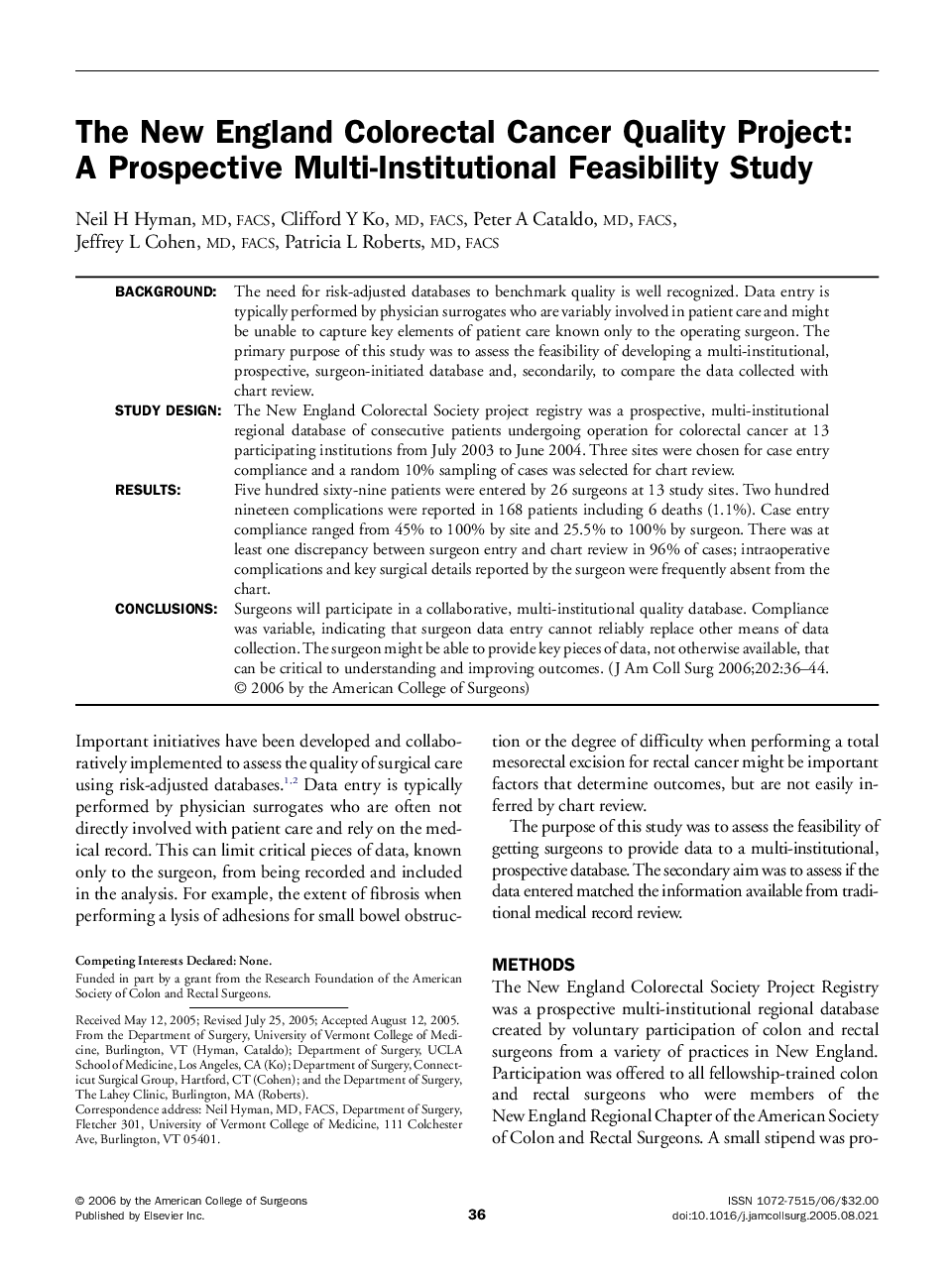| Article ID | Journal | Published Year | Pages | File Type |
|---|---|---|---|---|
| 4294674 | Journal of the American College of Surgeons | 2006 | 9 Pages |
BackgroundThe need for risk-adjusted databases to benchmark quality is well recognized. Data entry is typically performed by physician surrogates who are variably involved in patient care and might be unable to capture key elements of patient care known only to the operating surgeon. The primary purpose of this study was to assess the feasibility of developing a multi-institutional, prospective, surgeon-initiated database and, secondarily, to compare the data collected with chart review.Study designThe New England Colorectal Society project registry was a prospective, multi-institutional regional database of consecutive patients undergoing operation for colorectal cancer at 13 participating institutions from July 2003 to June 2004. Three sites were chosen for case entry compliance and a random 10% sampling of cases was selected for chart review.ResultsFive hundred sixty-nine patients were entered by 26 surgeons at 13 study sites. Two hundred nineteen complications were reported in 168 patients including 6 deaths (1.1%). Case entry compliance ranged from 45% to 100% by site and 25.5% to 100% by surgeon. There was at least one discrepancy between surgeon entry and chart review in 96% of cases; intraoperative complications and key surgical details reported by the surgeon were frequently absent from the chart.ConclusionsSurgeons will participate in a collaborative, multi-institutional quality database. Compliance was variable, indicating that surgeon data entry cannot reliably replace other means of data collection. The surgeon might be able to provide key pieces of data, not otherwise available, that can be critical to understanding and improving outcomes.
